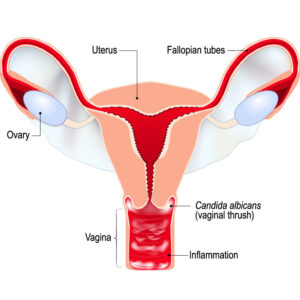Hormones play a crucial role in a woman’s overall health and well-being. They help regulate many of the body’s functions, including the menstrual cycle, reproduction, and metabolism. Hormonal imbalances can occur when there is too much or too little of a particular hormone, which can lead to a variety of symptoms and health problems.
Symptoms of hormonal imbalances in women can include irregular menstrual cycles, heavy or painful periods, mood swings, fatigue, weight gain, acne, hair loss, and fertility issues. These symptoms can be caused by a variety of factors, including stress, diet, medication, and medical conditions such as polycystic ovary syndrome (PCOS) or thyroid disorders.
Treatment for hormonal imbalances in women can vary depending on the underlying cause of the imbalance. In some cases, lifestyle changes such as eating a healthy diet, getting regular exercise, and reducing stress can help regulate hormones and improve overall health.
In other cases, medication may be prescribed to help regulate hormone levels. Birth control pills can be used to regulate menstrual cycles and balance hormones. Hormone replacement therapy (HRT) may be recommended for women experiencing menopausal symptoms, such as hot flashes and vaginal dryness.
Herbal supplements such as black cohosh and soy products may also be helpful in managing hormonal imbalances. These supplements contain phytoestrogens, which are plant-based compounds that mimic the effects of estrogen in the body.
In addition to medical treatment, there are also self-care practices that can help manage hormonal imbalances. These include:
- Eating a healthy diet: A balanced diet that includes whole foods, lean protein, and healthy fats can help regulate hormones and improve overall health.
- Getting regular exercise: Exercise can help regulate hormones and reduce stress, which can improve overall health and well-being.
- Getting enough sleep: Getting enough sleep is important for hormone regulation and overall health.
- Managing stress: Stress can disrupt hormone levels, so finding ways to manage stress, such as through meditation or yoga, can be helpful.
- Educating yourself: Learning about hormonal imbalances and how they affect your body can help you make informed decisions about your health and treatment options.
It is important to work with a healthcare provider to diagnose and treat hormonal imbalances. Hormonal imbalances can have a significant impact on a woman’s health and quality of life, so seeking treatment is essential for maintaining overall health and well-being. By making lifestyle changes and working with a healthcare provider to develop a personalized treatment plan, women can effectively manage hormonal imbalances and improve their overall health and well-being.




